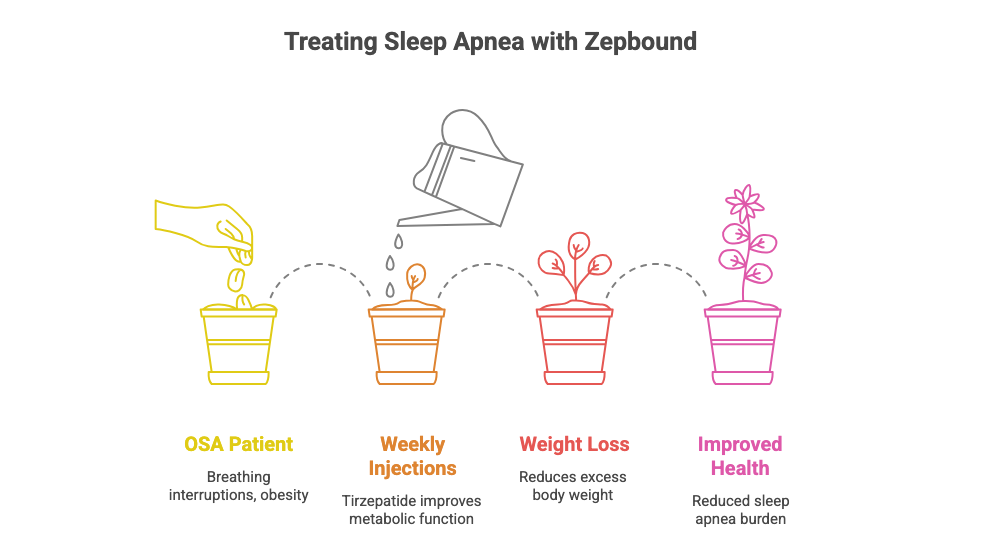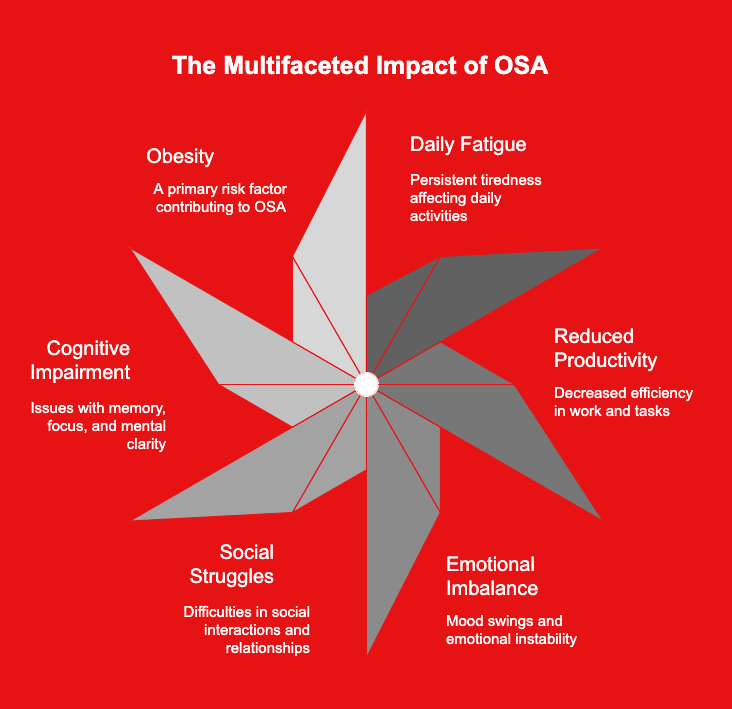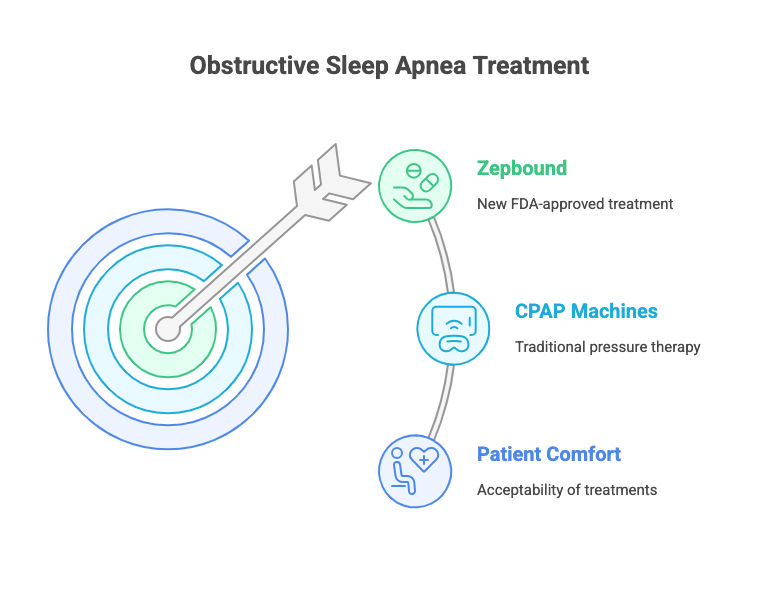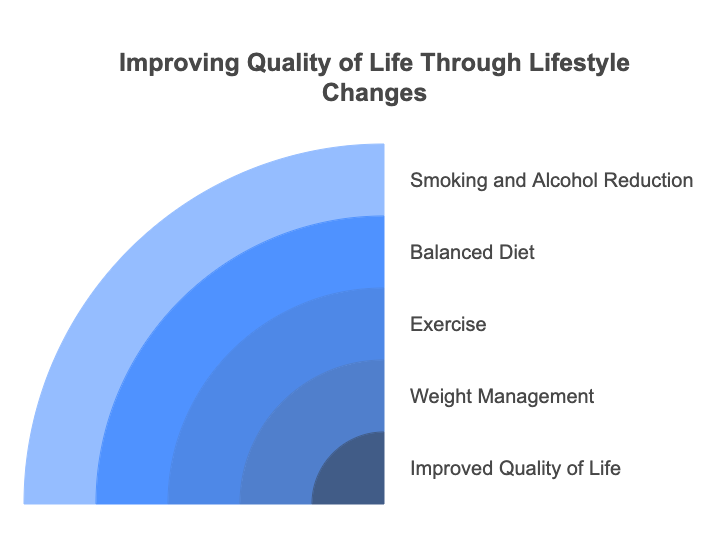Key Highlights
- Zepbound (tirzepatide) has emerged as the first FDA-approved prescription medication for treating moderate-to-severe obstructive sleep apnea (OSA) in adults with obesity.
- Clinical trials led by Eli Lilly revealed significant reductions in breathing interruptions and dramatic weight loss among participants.
- Approved in December 2024, Zepbound works by improving metabolic function and decreasing excess body weight, a key factor in OSA.
- Patients benefit from its weekly injection format, offering flexibility and effectiveness over a year-long regimen.
- This breakthrough treatment represents a critical step toward addressing the burden of sleep apnea and its far-reaching health impacts.

A Comprehensive Look at Obstructive Sleep Apnea and the Role of Zepbound
Obstructive sleep apnea (OSA) is a prevalent yet often undiagnosed sleep disorder affecting millions of individuals in the United States. Shockingly, it’s estimated that 80% of people with sleep apnea are unaware of their condition. If left untreated, sleep apnea can severely impact your health, increasing your risk of heart attack, stroke, and even death.
Understanding Obstructive Sleep Apnea
OSA doesn’t just rob you of a good night’s rest; it affects your entire lifestyle. Day-to-day, individuals with sleep apnea often feel tired, sleepy, less productive, and emotionally unbalanced. There’s also a social and cognitive toll, ranging from depression and irritability to brain fog and social struggles. Where does this all stem from? Largely from a few key risk factors, primarily obesity.

Risk Factors and Diagnosis
Obesity is the number one risk factor for sleep apnea. Other contributors include anatomical factors like a short neck or receding jaw, certain endocrine disorders, and lifestyle factors like alcohol consumption. The gold standard for diagnosing sleep apnea is a sleep study, where doctors can identify periods of apnea (complete cessation of breathing) and hypopnea (partial blockage of airflow) by calculating the Apnea-Hypopnea Index.
Traditional Treatments vs. New Advances
Traditionally, patients have been prescribed Continuous Positive Airway Pressure (CPAP) machines, which are medical devices that deliver pressure to keep airways open. However, many users find these machines uncomfortable due to their bulky masks and claustrophobic feel. The CPAP’s acceptability rates hover around 60%. Thankfully, a new FDA-approved treatment offers hope: Trizeptide, marketed as Zepbound, provides a more effective solution.

Zepbound: A Game Changer
Approved for use in December 2024, Zepbound is proving to be more effective than CPAP machines. As a medical treatment, it not only addresses sleep apnea but aids in weight loss, improves metabolic health, and thereby reduces related risks of high blood pressure, diabetes, food intake, and cholesterol. Trizeptide works by targeting GIP and GLP-1 receptors, commonly involved in insulin excretion and fat metabolism.
Weight Management and Lifestyle Changes
Beyond pharmaceutical interventions, weight management is crucial. Losing even a small percentage of body weight can significantly lower one’s risk of developing sleep apnea. Consider activities like exercising for 150 minutes weekly, maintaining a balanced diet, quitting smoking, and limiting alcohol intake. These lifestyle changes, however, when combined with treatments like Zepbound, can dramatically improve one’s quality of life.

Conclusion
In the evolving landscape of healthcare, managing obstructive sleep apnea effectively requires a combination of cutting-edge medical treatments and proactive lifestyle adjustments. At Kundlas MD, our mission is to demystify healthcare one topic at a time, empowering you to take control of your health with confidence and clarity. Please watch our series of videos on sleep apnea for more information, and remember to like, share, and subscribe to our content. Let’s work together to promote a healthier, more informed society.
Frequently Asked Questions
How quickly does Zepbound start working?
Zepbound starts to work at different times for each person, but most see results in a few weeks. At first, patients might have less appetite and lose a little weight. Over time, this can help with OSA symptoms, like fewer breathing interruptions during sleep. To get the best benefits from this sleep medicine, it’s important to use it regularly and follow the guidelines given.
Are there any long-term side effects of using Zepbound?
The long-term side effects of Zepbound can lead to serious health consequences, including allergic reactions, thyroid cancer, or gallbladder problems, but these cases are rare. Common effects like nausea and vomiting usually improve over the course of a year. If patients feel a lot of discomfort, they should get medical help right away.


